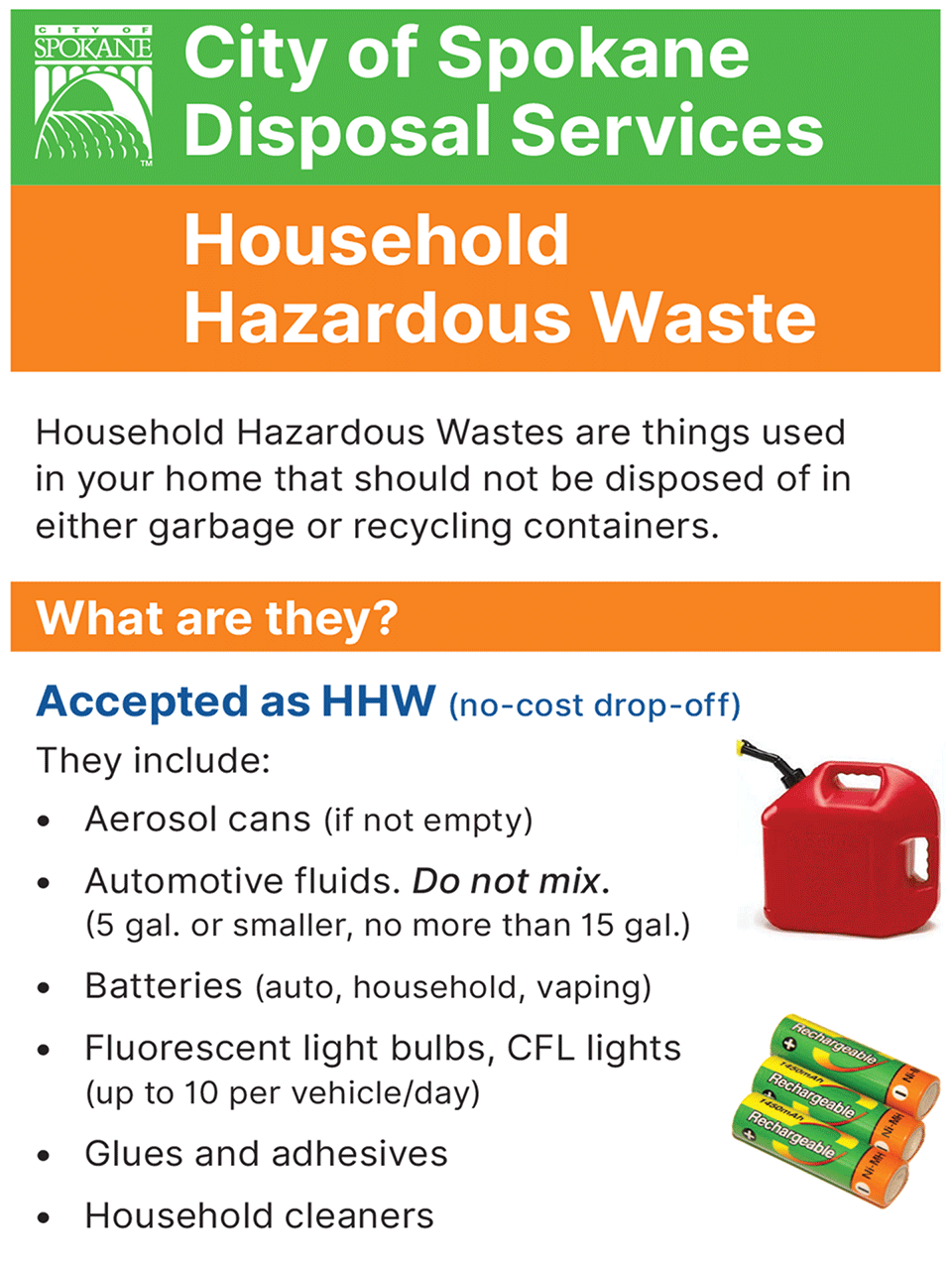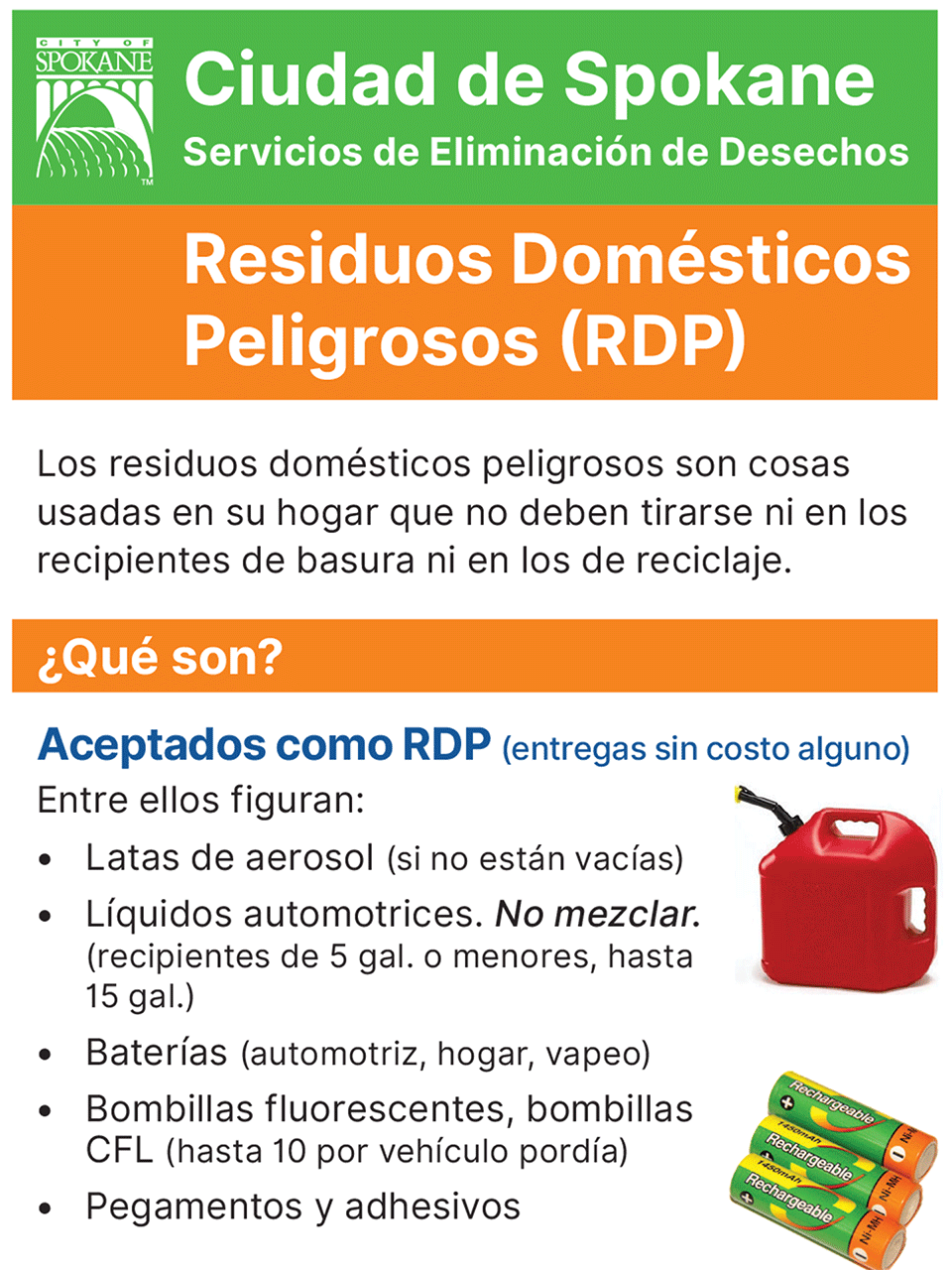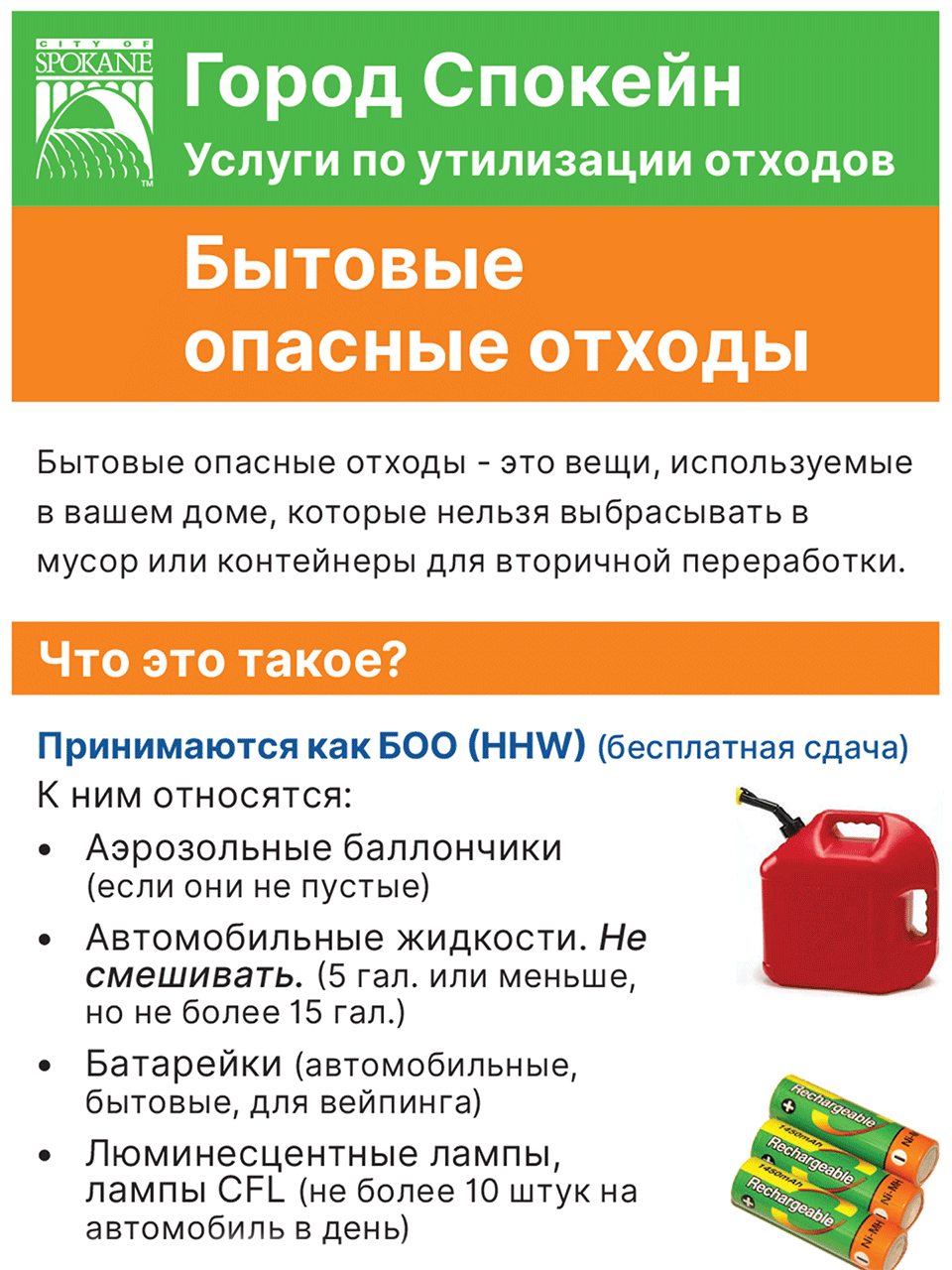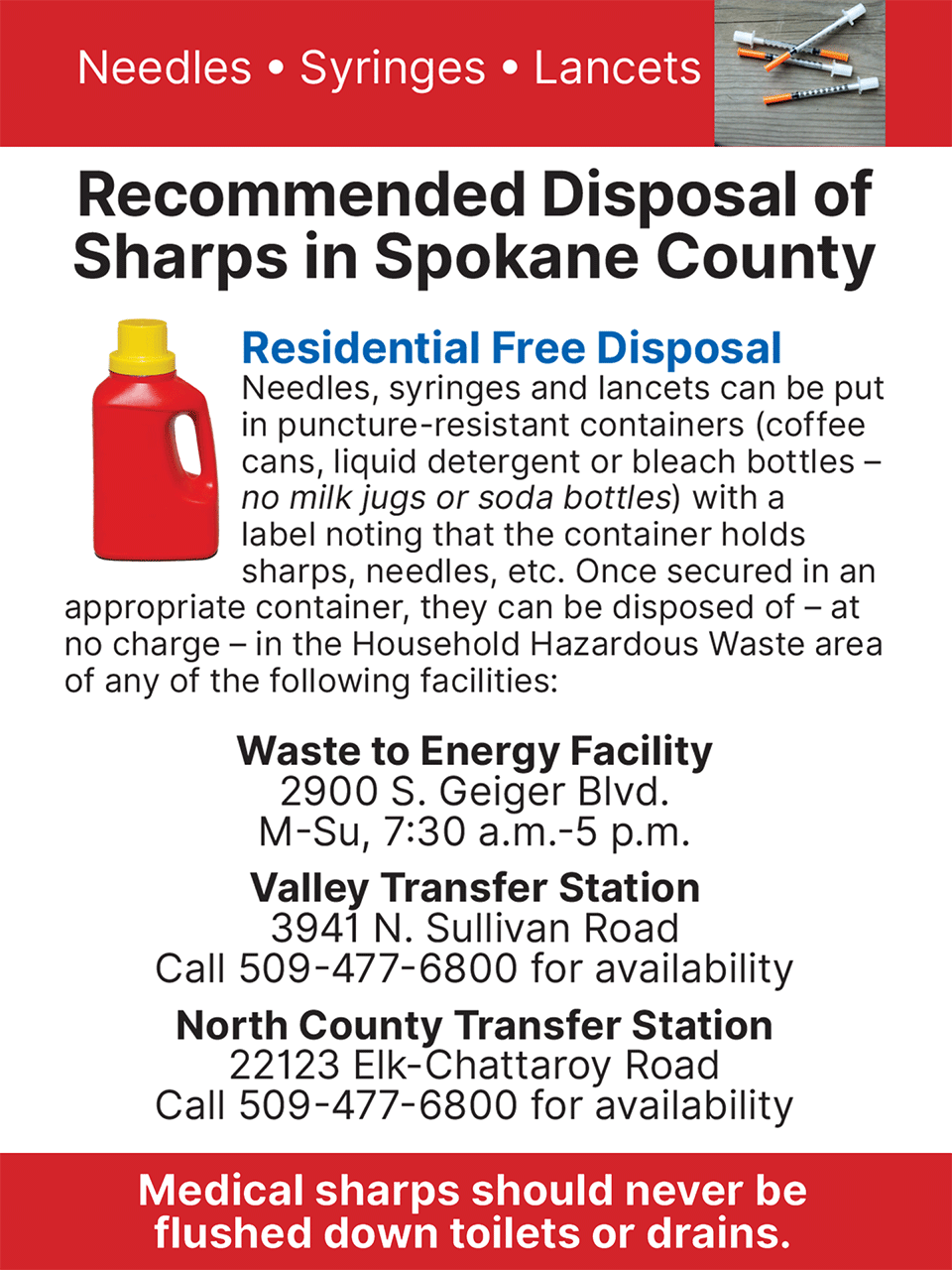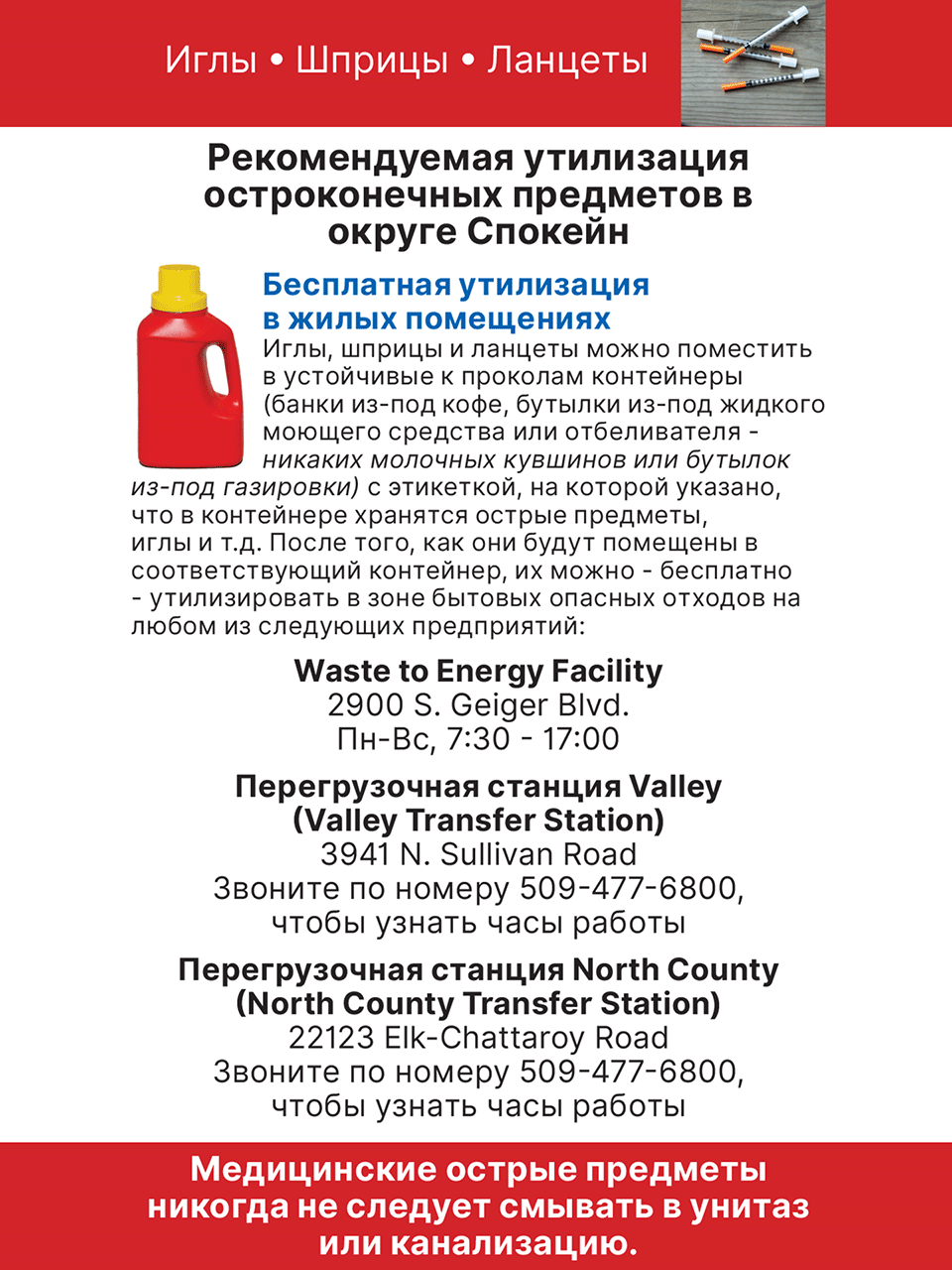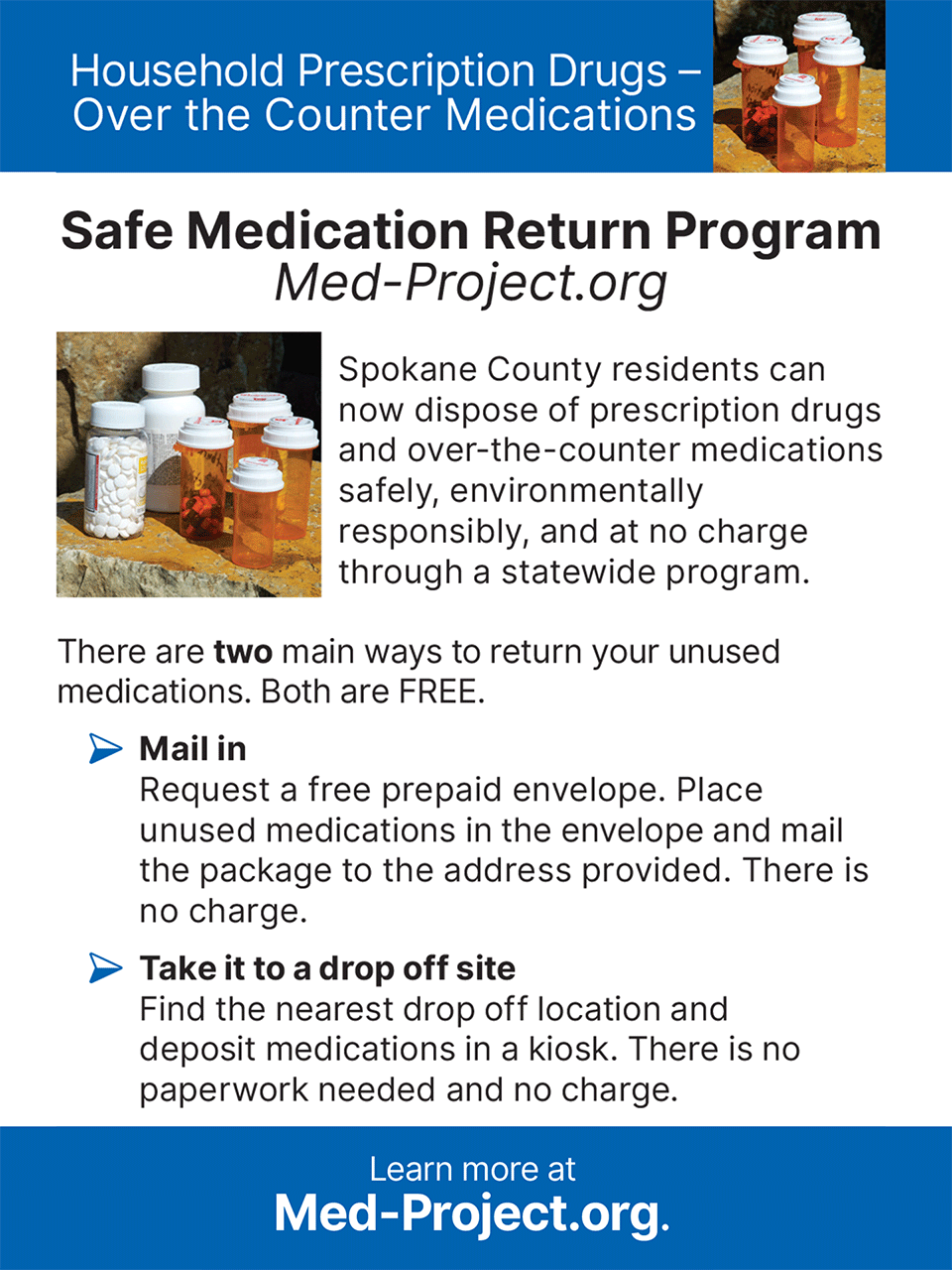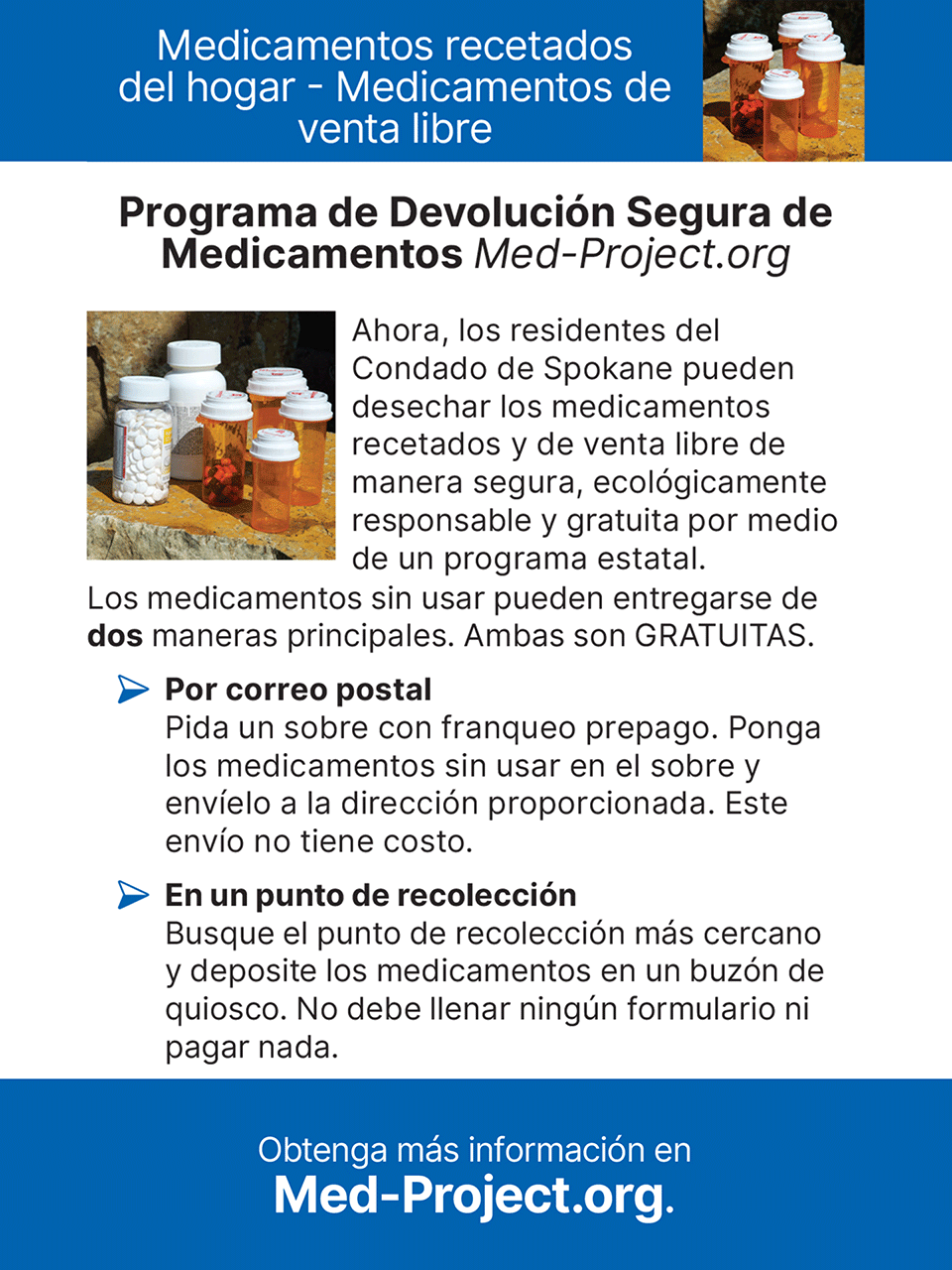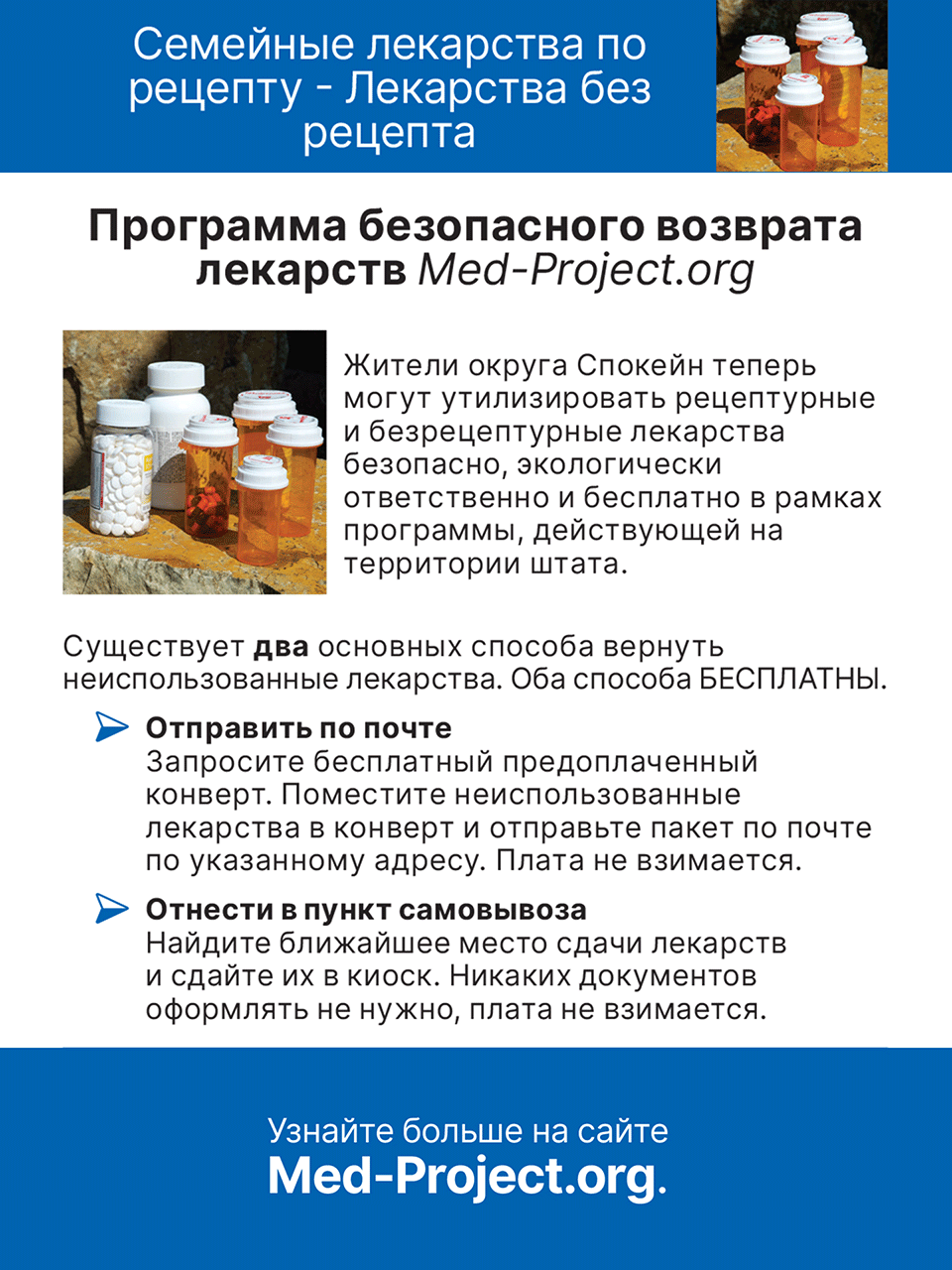Notice: The Waste to Energy Facility at 2900 S. Geiger Blvd. now accepts fire-damaged materials that are recognizable and free of ash if accompanied by an asbestos survey. See Fire Damage Debris Disposal flyer for requirements and information. (PDF 165 KB)
Hazardous Wastes
Household Hazardous Waste
Many products used in our homes contain hazardous chemicals. It is important to handle these products with care to prevent harm to yourself, other living things, and our environment.
Household hazardous waste includes household items that usually carry words like caution, warning, danger, corrosive, poison, flammable, combustible, and explosive.
Household Hazardous Waste (HHW) is accepted at no charge at the City and County transfer stations only from residential customers and only when the materials have come from a private home or vehicle. The City's transfer station at the Waste to Energy Facility accepts HHW during all open hours – 7:30 a.m. to 5 p.m., seven days a week. The County's North County and Valley transfer stations accept these wastes on Saturdays and Sundays only between 8:30 a.m. and 4 p.m.
Materials should be in leak-proof containers with the contents labeled on the outside. No containers greater than 5 gallons. Waste containers cannot be emptied and returned. Here's a quick guide (PDF 1.1 MB) to items accepted at the City and County facilities.
Compact Fluorescent Lights
Fluorescent lights are more energy efficient than incandescent lights, but they do contain mercury. They should be disposed of properly. One broken fluorescent bulb can contaminate 7,000 gallons of water with mercury.
Fluorescent bulbs should not be placed in residential garbage or recycling carts. We ask you to accumulate burned out fluorescent bulbs, up to ten at a time and other household items containing mercury and deliver them to the Household Hazardous Waste section at the transfer stations. Disposal is free. Other drop-off locations for mercury-containing lights can be found by going to LightRecycle website.
For businesses needing information on safe disposal options for fluorescent lights and other items containing mercury, contact the Recycling Hotline at 509.477.6800.
Residential Sharps & Pharmaceutical Waste
You can prevent injury and illness by following simple steps when disposing of residential or home health care sharps and pharmaceuticals.
Sharps
All needles, syringes, lancets and other sharp objects should be placed in a puncture resistant container (coffee can, liquid detergent or bleach bottle) with a label noting that the container holds sharps. Once secured in a container, sharps can be disposed of at the Household Hazardous Waste area at transfer stations.
Please do not flush sharps down toilets and never place sharps containers in recycling carts. Visit the Center for Disease Control website for additional information on safe community needle disposal.
Medications
Spokane County residents can now dispose of prescription drugs and over-the-counter medications safely, environmentally responsibly, and at no charge through a statewide program.
Safe Medication Return Program
There are two main ways to return your unused medications. Both are FREE:
- Mail in:
Request a free prepaid envelope. Place unused medications in the envelope and mail the package to the address provided. There is no charge. - Take it to a drop off site:
Find the nearest drop off location and deposit medications in a kiosk. There is no paperwork needed and no charge.
Learn more at MED-Project: Medication Education & Disposal
E-Cigarettes and Vaping Devices
Improper disposal of E-cigarettes, including rechargeable batteries and the cartridges and bottles that contain e-liquids, may lead to unintentional exposure, accidental nicotine poisoning, and negative environmental impacts. Learn more about the proper management and disposal of this type of waste.
Hazardous Waste from Businesses
Business waste cannot be accepted at the WTE household hazardous waste drop off area. Disposal options for hazardous wastes generated from businesses depend on the amount the business generates and is regulated by the Washington State Department of Ecology.
“Small Quantity Generators” are businesses that generate less than 220 pounds of dangerous waste or 2.2 pounds of acutely hazardous waste per month. Get more information on Small Quantity Generators.
“Large Quantity Generators” are businesses that generate more than the above amounts of hazardous wastes per month. Disposal for these businesses is regulated by the Washington State Department of Ecology. Get more information on Large Quantity Generators.
Technical Assistance/Education
A comprehensive directory options for businesses and residents is available on the EnviroCertified website.
Information Library - Hazardous Waste
Chemical or Hazardous Spills
- Emergencies: Fire or Police, Call 9-1-1
- Spills to Sewers: Daytime 509.625.4600; After Hours 509.625.4610
- Spills to Ground or Surface Water: 24-hour Response 509.329.3400
Get Help with Hazardous Waste Emergency Planning for your Business:
Alliance of Hazardous Materials Professionals (AHMP)
800.437.7430
ahmpnet.org
EnviroStars
509.535.7084
envirostars.org
Local Emergency Planning Committee (LEPC)
509.477.2204
spokanecounty.org/emergencymgmt/
National Fire Protection Association (NFPA)
541.948.3146
nfpa.org
North America Hazardous Materials Management Association (NAHMMA)
877.292.1403
nahmma.org
Solid Waste Association of North America (SWANA)
360.668.6592
swananw.org
Spokane Fire Department
311, or for outside city limits, 509.755.CITY (2489)
spokanefire.org
Spokane Valley Fire Dept.
509.928.2462
spokanevalleyfire.com
Washington State Department of Ecology – Eastern Regional Office
509.329.3400
ecy.wa.gov
Washington Refuse and Recycling Association (WRRA)
360.943.8859
wrra.org
Washington State Recycling Association (WSRA)
206.244.0311
wsra.net
Chemical or Hazardous Spills
-
Emergencies
Fire or Police, Call 9-1-1 -
Spills to Sewers
Daytime 509.625.4600
After Hours 509.625.4610 -
Spills to Ground or Surface Water
24-hour Response 509.329.3400
Waste and Recycle Directory
A comprehensive waste disposal directory is maintained by the EnviroCertified Program.
Alternatives to Hazardous Waste
Learn safer alternatives to using hazardous products in your home and yard.

